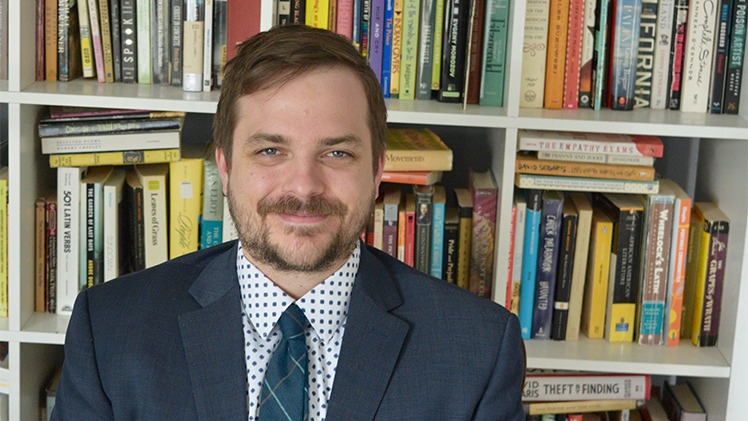Dr. Tyler Branson, associate professor in the Department of English, Language and Literature and associate director of the Composition Program, has a newly published book by Southern Illinois University Press about education reform initiatives in the 20th century and their impact on the way writing is taught and understood in higher education.
Branson said he wrote “Policy Regimes: College Writing and Public Education Policy in the United States” to help make sense of educational inequality in the United States.

Dr. Tyler Branson, associate professor in the Department of English, Language and Literature and associate director of the Composition Program, has a newly published book about education reform initiatives in the 20th century and their impact.
“It’s been over 30 years since Jonathan Kozol published ‘Savage Inequalities,’ a book that documents the appalling inequities in public education thanks to racist education policies that disparately impact poor and minority students,” he said. “These inequities persist even to this day, and we don’t do enough work understanding the ways these kinds of K-12 education policies impact teaching and learning at the college level.”
Branson said his book presents the argument that education reform policies should be thought of in terms of “policy regimes,” an ideology to hold schools, districts, educators and students accountable for their results by rewarding schools that perform well and punishing schools that underperform.
Many of those “accountability regime policies,” however, have shown to disparately impact the most marginalized students across all levels of education, he said, “and have fundamentally changed the way we teach and administer writing at the college level.”
“In the book I argue that we need to do a better job paying attention to and understanding education reform policies so that we can better respond to them in our classrooms and programs,” Branson said. “It is also a call for greater collaboration between those in K-12 and higher education, so that we can strengthen our commitments to quality writing instruction across all levels of education, particularly when policy regimes of accountability often hinder our commitments to equity and inclusion.”